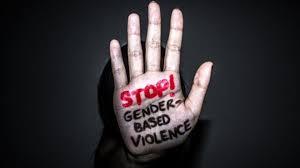According to the United Nations, violence against women is described as “ any act of gender-based violence that results in, or is likely to result in, physical, sexual, or mental harm or suffering to women, including threats of such acts, coercion or arbitrary deprivation of liberty, whether occurring in public or in private life”. The results from the first half of 2025 show that the rate of gender-based violence is higher in humanitarian settings, specifically in Gaza, Sudan, Democratic Republic of Congo (DRC).
The reports indicate that in Sudan, The activities of the Rapid Support Forces (RSF), including gang-rape, torture, ill-treatment, murder, aim to inflict maximum harm and humiliation on women and girls, most of whom are not involved in the conflict.
The UN Special Rapporteur, Reem Alsalem, described the situation Palestinian women and girls are facing as “femi-genocide”. The deliberate action of not providing the essential care for 150,000 pregnant and lactating women alongside the rest of the population may amount to violations of international law, including genocide. As a result of denied access to reproductive healthcare by the Israeli authorities, deaths related to pregnancy and childbirth are witnessed.
Doctors without Borders, also known as MSF, reports the alarming number of sexual violence victims and survivors. Survivors reported being forced to choose between being killed or raped. There is an increased risk of HIV infection after a sexual assault, while limited limited supplies are available.
As Rights Defenders, we call on the international community to cut any ties with RSF, Israeli authorities and armed groups of Congo to demand an end to the violence.
Gender-based violence also needs to be focused at a national level. Globally, almost one in three women experience physical and/or sexual violence at least once in their life. A study on gender-based violence showed a prevalence as low as 13% in Spain and as high as 41.6% in Argentina.
Even the lowest number is too high. We as Rights Defenders, demand the strengthening of legal policies that can establish law enforcement and justice response, increasing the trust bond between the survivor and the system. Furthermore, more education and awareness is necessary to shift harmful norms and stigma. Finally, we call for accountability from international bodies and national governments to ensure the protection of women’s rights across borders.
References
https://www.uia-initiative.eu/en/news/what-can-cities-do-prevent-genderbased-violence
https://www.oecd.org/en/topics/sub-issues/gender-based-violence.html
https://www.msf.org/sexual-violence-eastern-drc-persistent-emergency
https://www.who.int/news-room/fact-sheets/detail/violence-against-women
https://gbvaor.net/reports-events?utm_source=chatgpt.com

